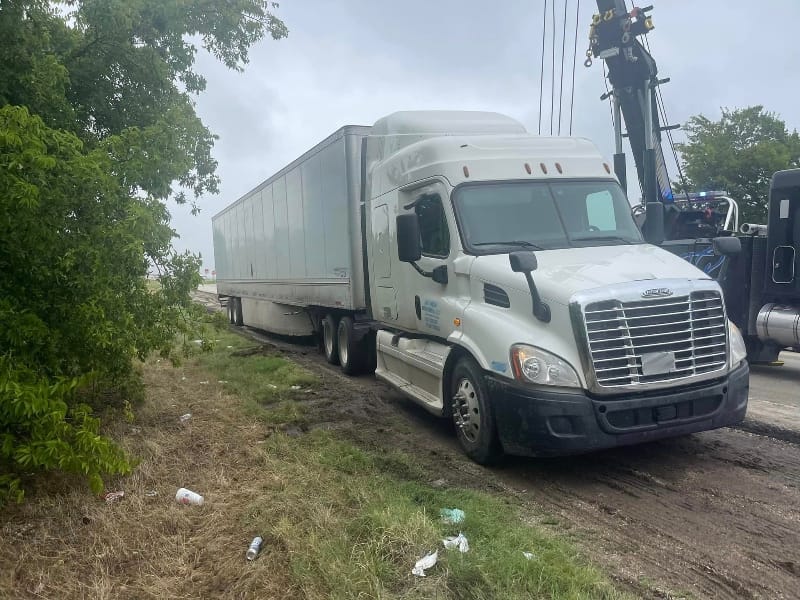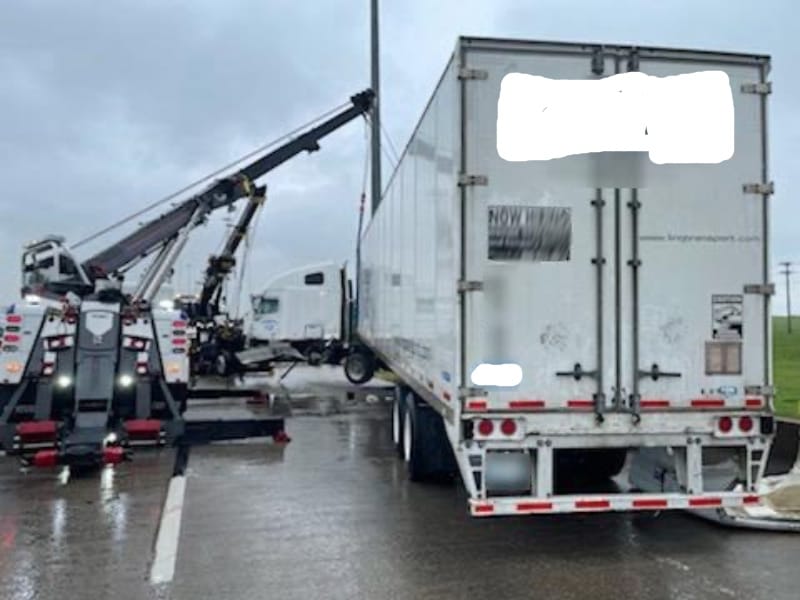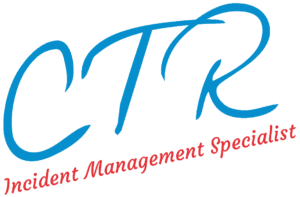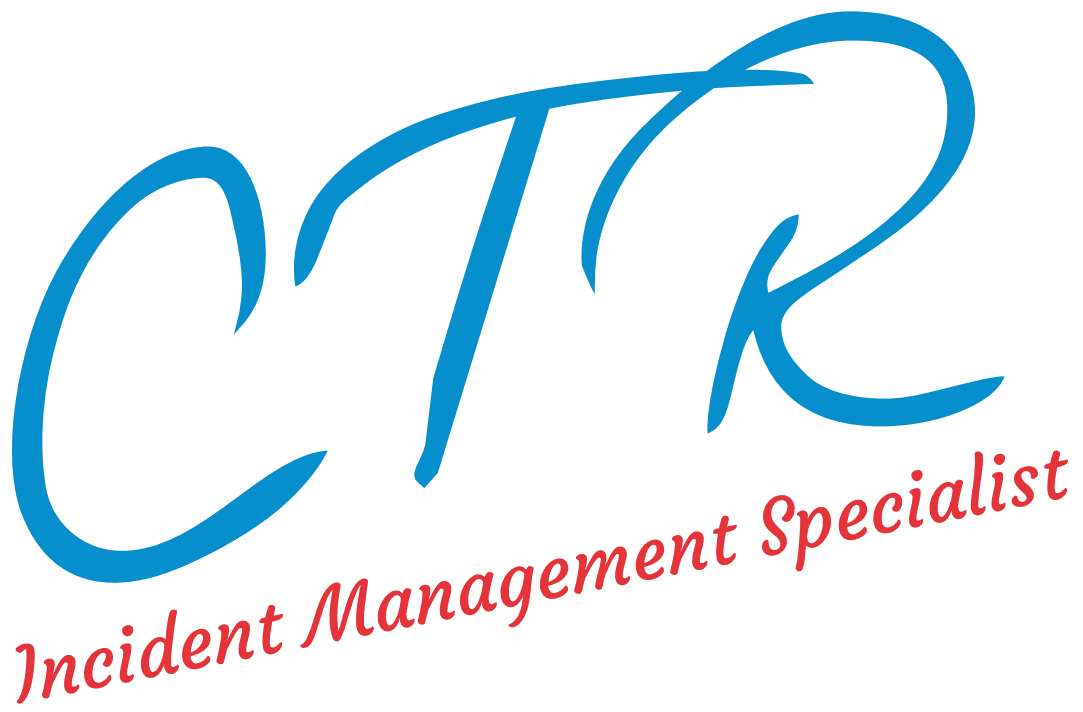Three Moves That Keep You Upright
There’s a moment of helplessness that hits when a trailer swings out of alignment and takes control of the rig. It’s the truck breakdown every driver fears. A jackknife often means a total loss of control. In and around Dallas, where traffic moves fast and space runs thin, jackknifing is one of the most dangerous situations a driver can face. We’ve seen the aftermath too many times, and as an I-30 heavy towing team, we know how quickly it can go from bad to worse.
So, what can drivers do to prevent it? Let’s break down the top three things we always remind truckers about. They might keep you upright when conditions turn against you.

Watch Your Speed Like Your Job Depends on It—Because It Does
Momentum is your enemy when the road throws a curveball.
Some I-30 heavy towing calls all start the same way: a trailer got loose and the driver couldn’t slow it down in time. Jackknifing usually doesn’t come out of nowhere. It’s the end result of speed overpowering control.
The faster you go, the less margin you have. Rigs can jackknife because the load shifted on a turn that should’ve been manageable. The issue wasn’t the curve, but the speed heading into it.
Speed control means:
- Slowing down on ramps and curves.
- Reducing speed in poor weather.
- Leaving extra space to brake smoothly.
That extra caution buys you control. And when it comes to jackknifing, control is everything.
Use the Brakes You Have, But Use Them Right
There’s no room for panic when your trailer starts to drift.
Hard, sudden braking is one of the biggest contributors to jackknifing. When the trailer brakes lock up or the tractor stops faster than the load behind it, physics does the rest. That’s why proper brake usage is so important.
You’ve got tools to avoid that snap loss of control: engine braking, downshifting, and gradual pressure on the pedal. Don’t just stomp the brakes and hope. Think ahead.
If your trailer starts sliding, ease up, not down. Let the trailer regain traction before you correct direction. Slamming the brakes just locks up the system, and that’s when trailers start moving sideways instead of forward.
Load Smart or Prepare to Pay the Price
Balance isn’t just a warehouse problem—it’s a highway problem too.
We can’t tell you how many jackknifes we’ve seen caused by poorly loaded trailers. Too much weight in the rear can swing wide under braking. An uneven load can shift and throw off handling in a curve. And a poorly secured one? That’s just a disaster waiting to happen.
Before hitting the road, double-check that:
- Loads are evenly distributed over the axles.
- Cargo is secured tightly to prevent shifting.
- The center of gravity isn’t too high.
If it feels like overkill, it’s not. It’s the difference between staying upright and sliding across three lanes of traffic.
When the Worst Happens
Even the best-prepared driver can’t prevent everything. Black ice doesn’t care how cautious you are. A blown tire on a downhill grade changes the rules instantly. That’s why we stay ready for every I-30 heavy towing call.
When jackknifing happens, we deploy fast. Our heavy-duty wreckers can handle complex recoveries. We assess the situation, stabilize the scene, and work to reopen the road as quickly and safely as possible. We don’t cut corners. We don’t waste time. We know how critical it is to recover your rig and your load without added damage. We’re expert incident managers.

CTR Towing Service Is Built for I-30 Heavy Towing
Our work doesn’t start when the crash happens, but by helping drivers understand how to avoid one. But if your truck does jackknife, know this: we’re already prepared. Our I-30 heavy towing team is trained, equipped, and ready 24/7 to respond to wrecks, recoveries, and roadside emergencies.
Jackknifing is serious. But you’re not alone. Keep these tips in mind, stay alert on the road, and if trouble strikes, we’ve got your back.

